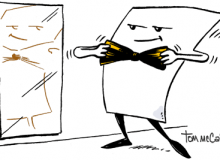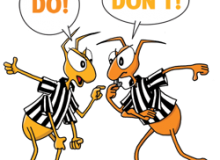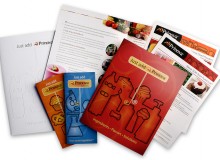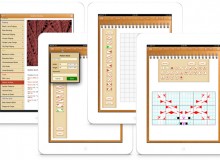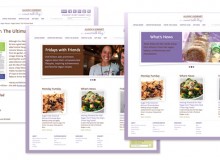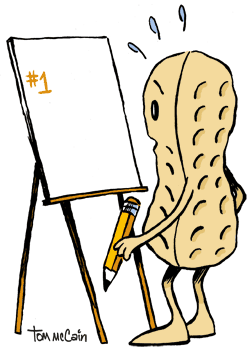 The Great Recession presents an excellent opportunity to examine the relevance of your tagline. How you position yourself now and, equally importantly, as the economy improves has more significance than ever. Most marketing analysts believe that the unprecedented economic conditions are accelerating long-term marketplace changes.
The Great Recession presents an excellent opportunity to examine the relevance of your tagline. How you position yourself now and, equally importantly, as the economy improves has more significance than ever. Most marketing analysts believe that the unprecedented economic conditions are accelerating long-term marketplace changes.
So it’s a great time to think about your business, how it fits into the future and whether or not your tagline contributes to what you want customers to know about your company in the emerging marketplace. Is it dated, or does it express something that will resonate with the needs of your target audience?
What’s the Purpose of a Tagline, Anyway?
Conveying your company’s key brand message is the primary function of a tagline. If a customer or prospect gets nothing else from your messaging, you want them to remember the tagline message. But being memorable isn’t all that easy, and bad taglines from companies of all sizes litter the marketing landscape.
According to Mike Myatt, chief strategy officer of venture growth consultancy, N2Growth, “A tagline is the new media version of a company slogan. It can be a mantra, company statement or even a guiding principle that is used to create an interest in your company, product or service.”
Further, he points out that a tagline is not to be confused with a unique selling proposition, which is a value statement that communicates what sets your business, product or service apart from the competition. While a unique value proposition helps your company align strategy with positioning and execution, a tagline is a pure piece of marketing copy that sums up what you do or what you want the marketplace to know about your products or services.
“Perfect” Tagline Criteria
According to Timothy R V Foster, author of “How Ad Slogans Work” for howstuffworks.com and founder of Ad Slogans Unlimited, the ideal tagline fulfills several criteria in addition to being memorable:
- Includes a key benefit (Holiday Inn: “Pleasing people the world over” versus Exxon: “We’re Exxon.”
- Differentiates the brand (Timex: Takes a licking and keeps on ticking.)
- Recall the brand name. Techniques like rhyming can help (“See the USA in your Chevrolet.”). An alternative is to rhyme without mentioning the name (Paul Masson: “We will sell no wine before its time.”)
- Impart positive feelings about the brand. Negativity rarely works in book titles, politics or advertising (Coca-cola: “Coke is it!” versus Lea & Perrins: “Steak sauce only a cow could hate.”).
- Not be usable by a competitor. Some taglines could fit any organization (TRW: “A company called TRW.”). You could drop in any name and it works. Foster points out that he has nearly 30 companies in his database with the tagline, “Simply the best.”
- Strategic. You might be able to convey your strategy through a tagline (DuPont: “Better things for better living through chemistry.).
- Trendy. This is dangerous territory, though some companies are trying, for example, to create single-word taglines (Nissan: “Driven.”). But it’s a tough challenge. A trendy variation is to use three words or ultra-short phrases, which helps with complex messages (Monsanto: “Food. Health. Hope,” or the all-time category classic, Kellogg’s Rice Krispies: “Snap! Crackle! Pop!”).
Getting Started
Get your team together and don’t be intimidated. Start by brainstorming a long list. Don’t get hung up on word counts at the beginning. You can always whittle the words down later, but you don’t want to sacrifice potentially good messages too early. Then test your best ideas with internal and external colleagues, trusted customers and even some random reviewers. A wider range of participants in the critiquing process will help assure that your tagline has clarity.
Remember too, that you may need multiple taglines. While you’ll only want one, of course, as the overall positioning message, you may want taglines for your corporate newsletters, a customer education program and other marketing activities. In both of these instances, you would want to come up with an original name and a tagline that adds further clarity.
Want Expert Advice?
MondoVox Creative Group can help you develop winning taglines from concept through creative execution. For more information, email Julia Moran Martz.
You can connect with Julia Moran Martz on LinkedIn. Or follow her on Twitter.
By Larry Bauer
 We love giving you the confidence that lets you sleep well at night. To avoid tossing and turning during your next tagline change, use this value tagline do’s and don’ts checklist.
We love giving you the confidence that lets you sleep well at night. To avoid tossing and turning during your next tagline change, use this value tagline do’s and don’ts checklist.